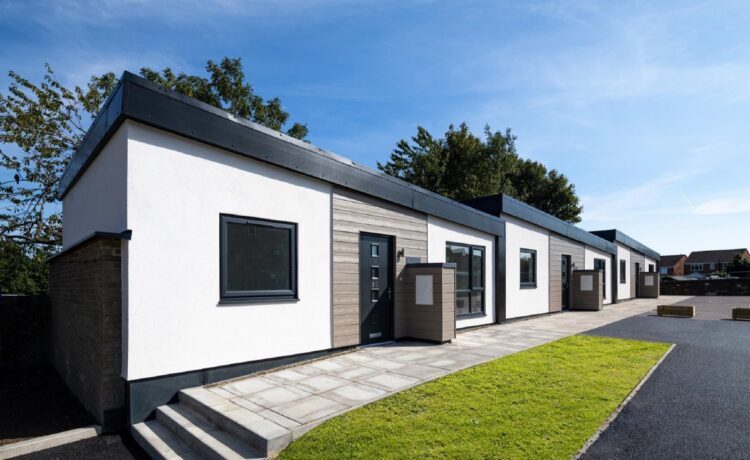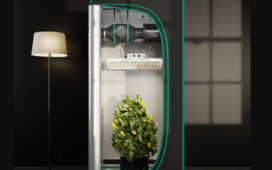Introduction
As sustainability becomes a top priority for homeowners, finding eco-friendly solutions for our living spaces becomes essential. Professional adu garage conversion north hollywood offer a unique opportunity to transform underutilized spaces into sustainable additions to our homes. In this blog post, we will explore the benefits of garage conversions, factors to consider before embarking on a conversion project, energy-efficient features to incorporate, materials for sustainable conversions, alternative uses for converted garages, common challenges, and solutions, as well as cost considerations and permits and regulations. Let’s dive in and discover how garage conversions can contribute to sustainable living.
Benefits of Garage Conversions for Sustainable Homes
Increased living space
One of the primary benefits of garage conversions is the creation of additional living space. By repurposing your garage, you can add valuable square footage to your home without the need for costly additions or renovations. This extra space can be utilized for various purposes, such as creating a home office, a gym, a playroom, or even an additional bedroom.
Reduced energy consumption
Garage conversions can significantly reduce energy consumption in your home. By insulating the converted space and ensuring proper ventilation, you can improve the energy efficiency of your home. This translates to lower energy bills and a reduced environmental impact.
Lower carbon footprint
Converting your garage into an eco-friendly living space can help lower your carbon footprint. By implementing energy-efficient features, using sustainable materials, and reducing the need for new construction, you contribute to a more sustainable future.
Cost savings
Garage conversions can be a cost-effective alternative to traditional home additions or renovations. Instead of investing in new construction, you can repurpose an existing space, saving both time and money. Additionally, the increased energy efficiency of the converted space can lead to long-term cost savings on utility bills.
Enhanced property value
A well-executed garage conversion can significantly enhance the value of your property. By creating additional living space and incorporating sustainable features, you make your home more attractive to potential buyers. This can be particularly beneficial if you plan to sell your home in the future.
Factors to Consider Before Converting Your Garage
Assessing your storage needs
Before proceeding with a garage conversion, it is important to assess your storage needs. Consider if there are alternative storage options available, such as sheds or off-site storage facilities. If storage is a concern, you may need to declutter and find creative storage solutions within your newly converted space.
Analyzing the structural integrity of the garage
Prior to converting your garage, it is crucial to analyze the structural integrity of the space. Ensure that the foundation, walls, and roof are in good condition and capable of supporting the intended use of the converted space. It may be necessary to consult with a professional contractor or engineer to assess the structural feasibility of the conversion.
Considering parking and vehicle storage alternatives
Converting your garage will inevitably impact your parking and vehicle storage options. Consider if there are alternative parking solutions available, such as street parking or a carport. If you still require covered parking, you may need to explore the possibility of adding a carport or expanding the existing driveway.
Energy-Efficient Features for Eco-Friendly Garage Conversions
When converting your garage into a sustainable living space, incorporating energy-efficient features is essential. Here are some ideas:
- Install energy-efficient lighting fixtures, such as LED bulbs, to reduce energy consumption.
- Utilize smart home technology, including programmable thermostats and energy monitoring systems, to optimize energy usage.
- Integrate solar panels to capture renewable energy and reduce reliance on the grid.
- Implement proper insulation to minimize heat transfer and improve energy efficiency.
- Consider installing energy-efficient windows and doors to maximize natural light and minimize heat loss.
Materials for Sustainable Garage Conversions
Recycled and Reclaimed Materials
Using recycled and reclaimed materials in your garage conversion is a great way to reduce waste and minimize environmental impact. Look for salvaged materials, such as reclaimed wood or repurposed furniture, that can add character and sustainability to your new space.
Low VOC (Volatile Organic Compound) Materials
When selecting materials for your garage conversion, opt for low VOC options. VOCs are chemicals that can off-gas and contribute to poor indoor air quality. Choose paints, adhesives, and sealants with low VOC content to promote a healthier living environment.
Insulation Materials
Proper insulation is crucial for energy efficiency in your converted garage. Choose insulation materials with high R-values, such as cellulose or spray foam, to minimize heat transfer and reduce the need for excessive heating or cooling.
Sustainable Flooring Options
Consider sustainable flooring options for your garage conversion, such as bamboo, cork, or reclaimed wood. These materials are renewable, durable, and environmentally friendly alternatives to traditional flooring options.
Water-Efficient Fixtures
If you plan to incorporate a bathroom or kitchenette into your garage conversion, opt for water-efficient fixtures. Choose low-flow faucets, showerheads, and toilets to minimize water consumption and promote sustainable living.
Ways to Incorporate Natural Light and Ventilation
Natural light and ventilation are key elements of sustainable living spaces. Here are some ways to incorporate them into your converted garage:
- Install skylights or solar tubes to maximize natural light in the space.
- Consider adding larger windows or glass doors to increase natural light and provide views of the outdoors.
- Implement proper ventilation systems, such as ceiling fans or air vents, to improve airflow and indoor air quality.
Alternative Uses for Converted Garages
Converted garages can serve a multitude of purposes based on your lifestyle and needs. Here are some alternative uses:
- Home office or workspace
- Gym or fitness studio
- Art studio or creative space
- Playroom or entertainment area
- Guest suite or rental unit
Common Challenges and Solutions in Garage Conversions
Garage conversions can come with their challenges. Here are some common issues and potential solutions:
- Lack of natural light: Address the issue by incorporating skylights, larger windows, or glass doors.
- Insufficient insulation: Enhance insulation by adding extra layers or using high-quality insulation materials.
- Potential parking issues: Explore alternative parking options, such as street parking or carports.
- Structural concerns: Consult with a professional to assess and reinforce the structural integrity of the space.
Cost Considerations for Eco-Friendly Garage Conversions
When planning a garage conversion, it is important to consider the associated costs. Factors that can influence the cost include:
- Size of the space
- Quality of materials used
- Extent of renovation work required
- Hiring professional contractors or doing the work yourself
- Permits and inspections
Permits and Regulations for Garage Conversions
Before starting your garage conversion, it is crucial to research and comply with the permits and regulations in your area. Contact your local building department to determine the specific requirements and obtain the necessary permits. Common regulations may include those related to electrical work, plumbing, and structural modifications.
Conclusion
Garage conversions offer a sustainable solution for maximizing space in our homes. By carefully planning the conversion, incorporating energy-efficient features and sustainable materials, and considering alternative uses for the space, we can create eco-friendly living areas that benefit both our lifestyles and the environment. With the right considerations and a commitment to sustainability, your garage conversion can become a valuable addition to your sustainable home.














